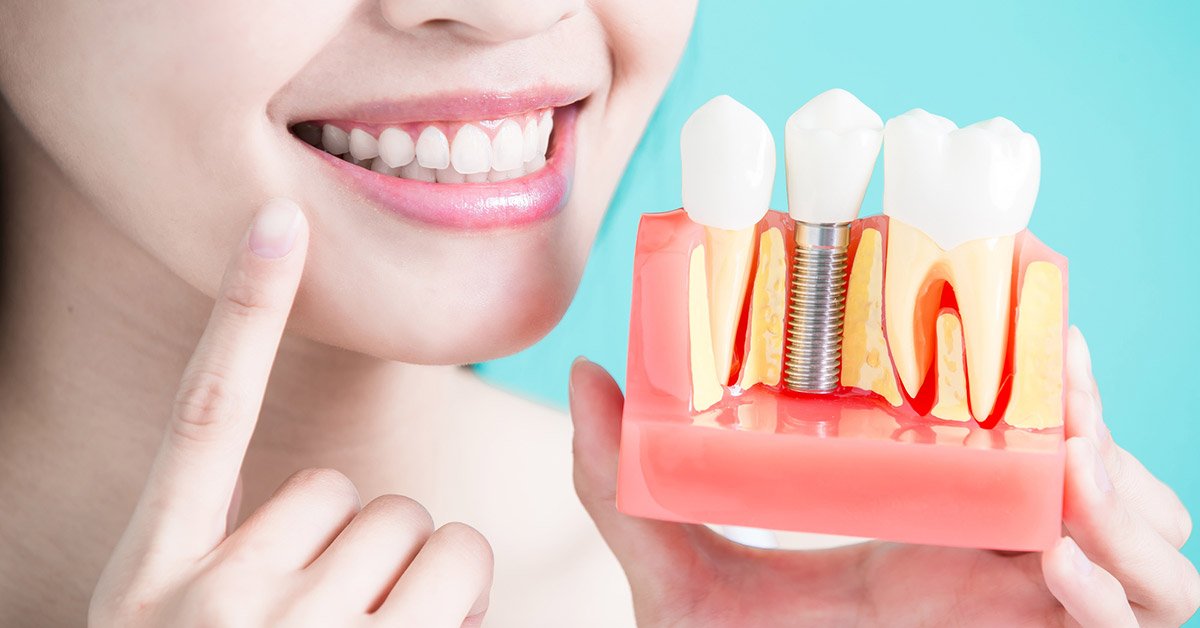In the last ten years, if you’ve been looking to replace missing teeth, dental implants have been the way forward. With advancements in technology and a more thorough understanding of teeth, the process behind implants is constantly changing. One thing’s for sure – there’s never been a better time to get implants.

So, what are they?
Good question. Dental implants are built out of titanium and use screws and abutments to keep your false teeth firmly in place. During the procedure, the screw itself is put straight into your jawbone, which will lead to the jawbone gradually developing around the implant. This process keeps the implant secured and tight, much like the root of one of your real teeth does. Oftentimes your dentist will have a few different designs to suit your unique needs. Fortunately, you don’t need one implant per tooth as one dental implant has the ability to hold various dentures at once.
The process
As with most dental procedures, the actual process behind inserting implants varies significantly depending on your situation. All in all, the treatment is incredibly efficient, effective and enduring. The downsides? They take a bit of time to be fully inserted. Even so, in the grand scheme of things it’s not too long (especially when you bear in mind that these implants will last a lifetime). Here’s a quick breakdown of the actual procedure:
- Extract any teeth that need removing
- Bone grafting if more is needed for additional support
- Placing of screws into the jaw
- Abutment attachment to the implant
- Bringing together of implant with your jawline
- Fitting dentures into implants.
With the use of modern technology and effective anaesthetic, trust us when we say you won’t feel a thing. If you want the highest quality treatment, we’d recommend London City Smiles. Their dental implant procedure is brilliantly smooth and has high levels of patient satisfaction.
Downtime
While downtime might be shorter than a lot of other dental treatments, you’ll still need some time to fully rest up and make sure everything can be healed as quickly as possible. In the immediate hours after the procedure, it’s important not to eat any food or drink that’s too hot or cold. This will affect the healing process and make it hard for you to distinguish temperatures.
When your anaesthetic has finally worn off, we’d suggest finding some effective painkillers from a local chemist. This will help with the varying amounts of pain you may be feeling post-surgery and just makes things that little bit easier. If you’re unsure where to begin with painkillers, get in touch with your dentist and they’ll give you a helping hand. If you’re experiencing some swelling, don’t worry – this is totally normal just after your procedure.
After a week you’ll be comfortable eating solid, hard foods again but it’s best to stick to the softer foods when you can. All that’s left to do is wait out the healing process and your implants are good to go!
We all know how important it is to keep your teeth in tip top shape. If you’re struggling with missing teeth or you’re being forced into extraction, dental implants are a fantastic permanent option.
Leave a Reply